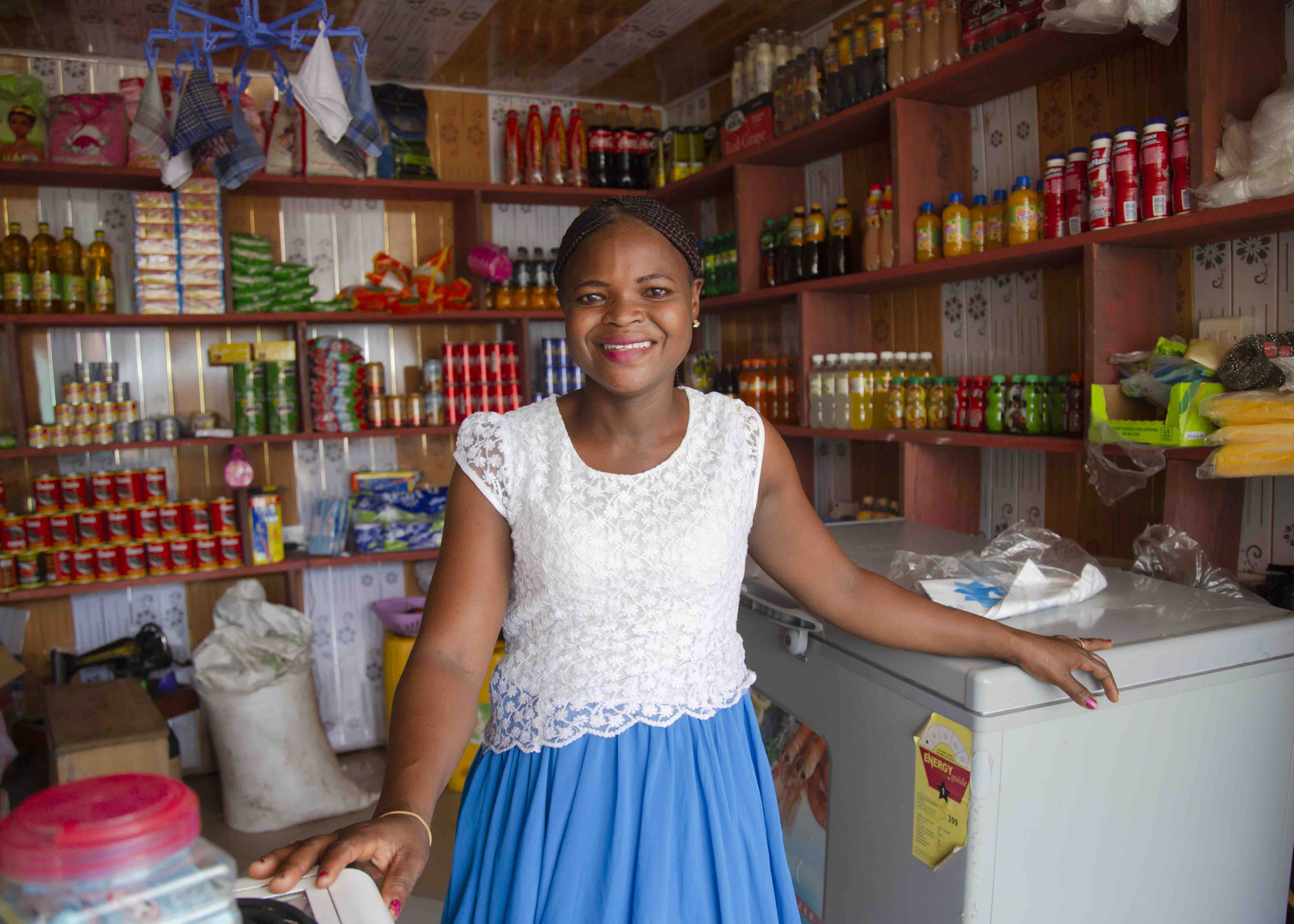Francisca Yeboah in her corner store, which she was able to establish with funds from the VSLA
Artisanal and small-scale mining is a vital activity in many developing countries, especially in areas where economic opportunities are limited. Though women play an essential role in artisanal and small-scale mining, contributing 40 to 50 percent of Africa’s total workforce in the sector, they are often not acknowledged for their efforts and contributions.
In Ghana, women contribute up to 51 percent of the workforce in the mines, yet lack of sanitary facilities, limited access to credit, and severe health risks continue to limit and stifle the opportunities for women to be productive in the sector.
But Solidaridad, through the Golden Line Project, is changing the status quo.
The programme, which is funded by the Dutch Ministry of Foreign Affairs, seeks to economically empower women in and around artisanal and small-scale gold mining communities in Ghana by creating an enabling environment, devoid of barriers, for them to work and attain their goals.
Addressing the specific needs of women in mining
In some mine sites, basic sanitary facilities and changing rooms are inadequate or nonexistent. As a consequence, both male and female workers of the mines have adapted nearby bushes as places of convenience.
Women have a special need for a changing room because of our monthly natural cycle. The absence of such facilities discourage many women from coming to work at the mine sites for long hours.” -Francisca Yeboah, a mine worker.
The Golden Line project has been engaging artisanal and small-scale mines to improve the situation. The project has offered a series of training and sensitization activities centred on women’s health, gender equality, women’s rights and responsible practices in small-scale mining
The Obeng Mining Group is a beneficiary of the intervention. Following the support of the Golden Line project, the management of the mine has taken steps to restructure its organizational policies and practices towards attaining gender equality on the mining site. Additionally, the mine has put up an office structure with toilet facilities and changing rooms. This, according to Francisca, has brought some relief to workers.
With greater support in the mine, Francisca now aspires to operate an excavator.
“Having a changing room and toilet facility on the Obeng mining site is a great feat that will bring relief to a lot of female miners,” she says.
She said the sensitization and training programmes have had a positive effect on them as they are now more responsible with their health and family life.
“Here, at the mines, I can see signs of management’s resolve to create an equitable working environment in which everyone can work happily with satisfaction. Because of this, I have plans of operating an excavator,” says Francisca.
Programme Manager for Gold at Solidaridad West Africa, Yaw Britwum Opoku, says the Golden Line project has contributed immensely to changes in the operations of project mines.
“With the sensitization and awareness creation on gender issues, women are gradually being perceived differently and their needs are being addressed by mining companies,” he says.
Economic empowerment
Francisca is able to save and access credit through the VSLA to run a side business.
To economically empower the women in mining, Solidaridad introduced the Village Savings and Loans Association (VSLA) scheme in the mines to help women develop a savings culture, access credit, increase their investment choices and achieve financial inclusion.
Francisca, together with other female miners, joined the scheme.
“Before the scheme, there was very little opportunity available for us to access loans to start or expand our side businesses to supplement our incomes. Today, through the VSLA scheme, I have secured and repaid a loan of 2,000 cedis (346 dollars), with which I have been able to establish a cold store in the community,” says Francisca.
So far, the project has established 151 associations with 2,863 members in the mining communities
The Golden Line is a five-year programme (2016-2020) initiated by Simavi, Solidaridad and Healthy Entrepreneurs, and is implemented in Ghana and Tanzania.
Across the two countries, the project lobbied mines to implement gender-inclusive policies. Sixteen artisanal and small-scale gold mines are now operating responsibly to support women’s needs and rights. This has led to improved working conditions for women within gold mines across the two countries.
Read more about our work in Gold.

